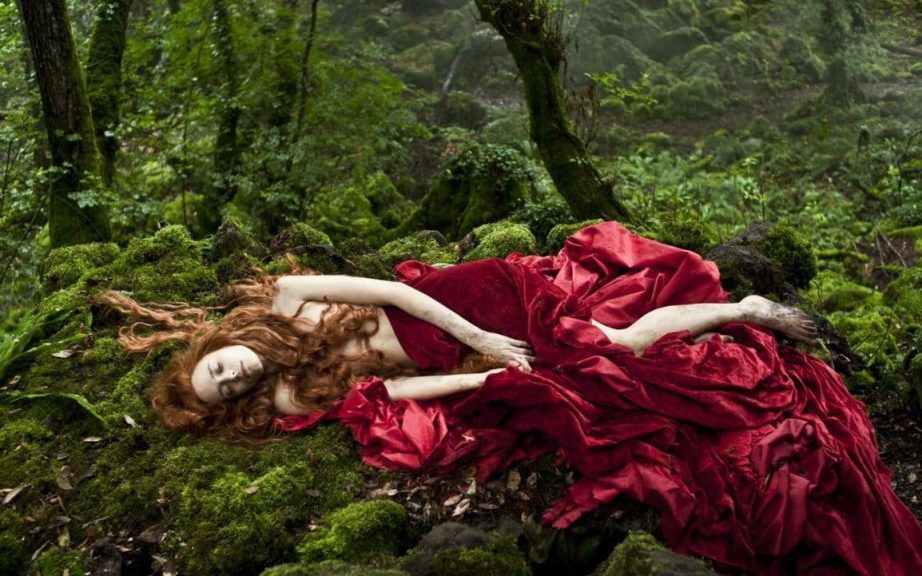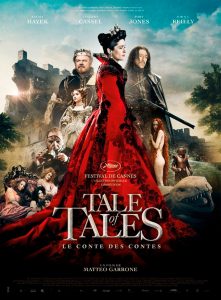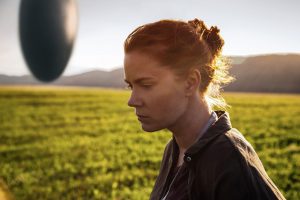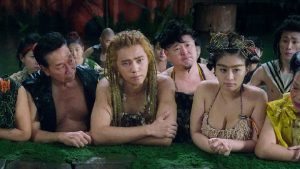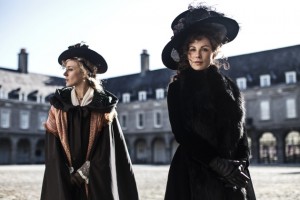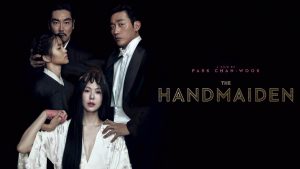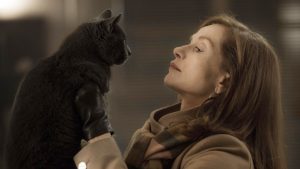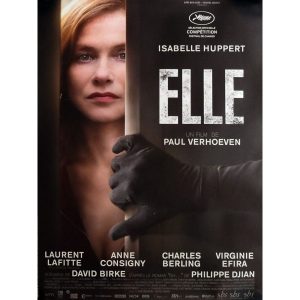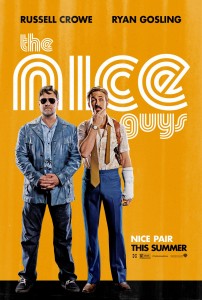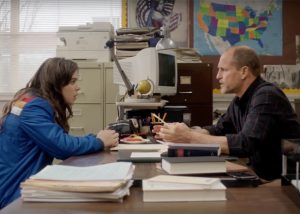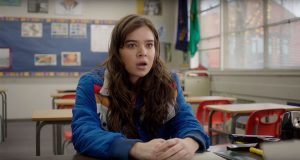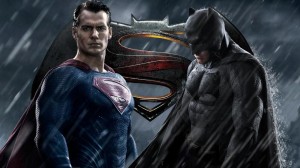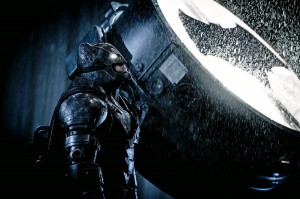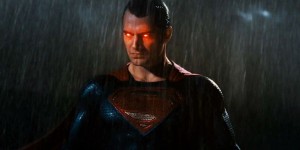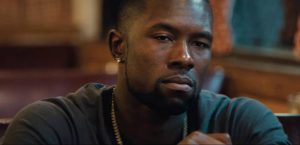I’m fortunate to know a group of people as passionate about film as I am. They’re students, programmers, filmmakers, screenwriters, bloggers, critics, and journalists. In this space, when I reference people I know whose opinions I respect—and who often hold positions contrary to my own—that’s who I’m talking about. The debates and conversations are always enriching.
As the year is wrapping up, I’ve invited them to contribute to Flaw In The Iris, and a few have kindly taken me up on it.
These are the questions I asked:
1 ) What are five features you enjoyed in 2016?
2) Name a film that was under-appreciated or under-seen, and why it deserves to have a higher profile.
3) If there was something you didn’t see enough of in 2016, what would you like to see more of in films in 2017? Or maybe a filmmaker who you miss? A cinematic wish for next year.
So far I’ve spoken to Nick Malbeuf, Hillary West, Zack Miller. and James Covey.
The next person on my list is Mark Palermo. For years he was the voice of film criticism in The Coast, Halifax’s alt-weekly. He’s directed two feature films, The Killing of Kings and Later That Stevening, and wrote the screenplay for Joseph Kahn’s Detention. He’s currently working on new screenplays, and you can check out his reviews on his YouTube channel.
This interview has been edited and condensed.
Flaw In The Iris: Do you wanna start with a few movies you liked in 2016?
Mark Palermo: I did a whole Top 10, though it isn’t ordered yet.
FITI: However you want to do it.
MP: I’d say the movie I liked the most this year is called Tale of Tales. Have you seen it?
FITI: I’ve heard of it, with Salma Hayek.
MP: Salma Hayek is in it, and John C. Reilly. It’s by the guy who directed Gomorrah a few years ago. It’s three stories based on Italian folk tales, and plays as a cross between The Princess Bride and Fellini’s Satyricon. It’s very ornate.
It’s something I feel has been missing from movies lately, this feeling of cinematic splendour and grandeur. On top of that the stories are just really good. There’s a sense of surprise, really great fantasy storytelling. They’re all based around this idea of when love becomes vanity, or when vanity becomes love.
Although movies are maybe declining as the predominant art form with video games and television taking that stand, we’re in a golden age of fantasy. You can see it on Game of Thrones, but there’s also a sense in movies that fantasy is being taken more seriously. In movies like Denis Villeneuve’s Arrival, there’s an aspect where the science fiction element is reflected in Amy Adams’ real life trauma. As well as this idea that communication right now is the big hurdle for human beings. That’s happening right now with a President of the United States that no one understands. But that’s what Arrival is about. How do we communicate with beings who are so different than us.
A movie like The Witch, which is about two worlds that are merging somehow. Is the settlers’ world that much different from the witches’ world, or are they both oppressed, stigmatized human beings in some way? I saw a movie Stephen Chow made this year—the guy who did Kung Fu Hustle—called The Mermaid.
That’s also about these two worlds, the corporate fat-cat world and the mermaid’s world, he’s preying upon her ecosystem and they combine. That seems like an important theme. Zootopia does the same thing.
FITI: So how many of these films are on your list?
MP: All of them. Those are the movies that have been the most thematically important to me, and the most resonant this year. I don’t typically like political movies, but I think movies are best when they’re about human beings and the politics are a result of that. There’s a mistake that happens with a lot of movies that go the other way, where the politics happen first.
FITI: I like this idea you have that through a fantastic structure we’re getting stories that are especially effective and relevant.
MP: That’s what fantasy is good at, metaphor and allegory. And I don’t want to rag on other movies, but there have been fantasy movies that have tried to this—Gravity, for instance, and Interstellar—where the human element is simply character development backstory. It isn’t as organic as in Arrival. Villeneuve is able to do it in a symbiotic way that’s exciting. I think he’s one of the most exciting filmmakers to come out of Canada, maybe ever.
FITI: Sicario was terrific. Are you excited about his next project, Blade Runner 2049?
MP: I try not to get too excited about movies I haven’t seen, but it’s unavoidable sometimes. I’m more excited by Villeneuve doing it than I would be if it was Ridley Scott.
FITI: Do you feel like you’ve seen everything Scott has to offer?
MP: Well, Blade Runner has one of the most influential aesthetics of any movie ever. Alien‘s a great movie. The Duelists is great. But I don’t know if Ridley Scott cares about his scripts, or notices when they’re good or bad. I find all his movies about 20 minutes too long now. Though he’s from a commercial background and can make things look cutting edge and amazing. I’m sure if he was doing the sequel to Blade Runner it would be a high calibre of movie, production-wise, I think Villeneuve is bringing something more on-edge and exciting to movies right now, in terms of visuals and ideas. If you look at Arrival, Sicario, Prisoners, Enemy, and Incendies, there’s an uneasy feeling in them, but it’s a different unease in each of his movies. It’s really hard to define what that is.
FITI: So give me the thematic portion of your list so far.
MP: Tale of Tales, Arrival, The Mermaid, The Witch, and Zootopia.
FITI: What’s next?
MP: I liked Love & Friendship, the Whit Stillman film. The combination I feel of Jane Austen and Whit Stillman is exciting. When I was a teenager I hated Whit Stillman. I took the satire too literally, and I was like, “Why do I want to watch movies about these rich assholes?” I think Stillman is interesting in the same way the Coen Brothers and Wes Anderson are able to poke fun at their characters but also treat their idiosyncrasies in a way that they’re still human beings. They’re amused by them. The Coen Brothers are often targeted as directors who hate their characters, I never thought that was true. Same with Stillman. It might be my favourite of the Jane Austen films.
FITI: Have you gone back to watch Stillman’s 1990s pictures?
MP: I did. I haven’t rewatched The Last Days of Disco, but I did see Metropolitan and Barcelona, which I’d never seen before. I enjoyed them a lot. Metropolitan might be his ultimate expression. Are you a fan of his?
FITI: I am, I enjoy how mannered his films are, especially those first three. I never was entirely sure these people in his films existed, but I did feel that I was getting a look into a world apart, something strangely timeless in the characters. Young people who are well-educated and have pretty commanding intellects still being completely unable to manage their emotional truths.
MP: Exactly. It’s about people who talk the big game, but who are still emotionally children.
FITI: Yeah, and there’s a warmth. It’s satiric, but he never talks down to his characters.
MP: Yeah, which I feel is the sign of a good artist, to have empathy. But for some reason that’s so rare in movies. We live in a world that views humans in black and white terms only.
FITI: And what else is on your list?
MP: A couple movies I saw at the Atlantic Film Festival. I enjoyed Park Chan-wook’s The Handmaiden.
It’s such a grand, cinematic expression. A movie that’s both very erotic and very silly, and kind of has this bad-ass hardness to it, too. I disliked the last film of his I saw, Stoker, where I felt he had over-directed the movie, trying to make up for a script I don’t think he found too interesting by moving the camera around a lot. Here it’s a good marriage of form and material, a story about metamorphosis and identity. And a movie I wish I liked a little more, but I did like, was Elle, the Paul Verhoeven film.
Isabelle Huppert gives what may be the best performance of the year in it. She’s a video game designer, Hentai games involving squids and pornographic creations. She’s sexually assaulted but doesn’t report it. It’s a movie about emotional violence, and that’s done to her and she does it to her own kid. It’s a very cold movie—I don’t think there are words of kindness exchanged between anyone in the whole thing. My problem is I think Verhoeven’s sense of humour sneaks in in inappropriate places. and it feels like it’s trying too hard in a few moments.
If you look at his American movies between Robocop and Starship Troopers (we’ll cast out Hollow Man) his visual style is incredible. Just the way he blocks his scenes. Even Showgirls, a critically disparaged film, the direction in that is amazing. This one serves the content, but it’s just two-shots, back and forth. But the movie has proved to be a critical comeback for him, and she’s great in it. It’s worth seeing.
A movie I really liked was The Nice Guys, the Shane Black film. It was really refreshing, the low-down aspect of the violence, all the collateral damage. I thought the comic chemistry between Ryan Gosling and Russell Crowe was a lot of fun. It was a good throwback to movies I liked as a teenager Shane Black worked on, like The Last Boy Scout. It had some of the biggest laughs of the year.
FITI: The Nice Guys felt very true to Shane Black’s preoccupations, the things he likes. And even though this was set in the 1970s, it really is an ’80s buddy comedy movie. With a racy, foul-mouthed fun, very unashamed and unselfconscious. And the daughter character is basically the smartest person in the movie, figuring stuff out. I really liked her.
MP: The best teen movie of the year was The Edge of Seventeen. Better than American Honey, make no mistake.
FITI: That’s interesting. Why is that?
MP: With American Honey, I know exactly what the director is thinking in that film. She’s approaching teenagers as anthropological wildlife. To me, it’s offensive. It’s like, “Look at what I found here, these poor kids listening to rap in a van for an hour of my three hour movie.” Fuck off, man.
I think there’s an element of the film that does work, where she’s approaching the characters now and then at eye level. Edge of Seventeen does that for the entire movie. What works is that the character played by Hailee Steinfeld is obnoxious and narcissistic, as teenagers are. It isn’t this sense of this undiscovered wildflower that we too often get in movies. The experiences feel real. The approach to sexuality felt real.
I found it startling, that I’m just starting to realize about teens—sex isn’t funny anymore. It’s just a fact of life that people are already jaded about, and this is the first time I’ve seen that in a movie. It’s important in movies that characters remain fallible, that they can do bad things. I only care about characters if they do things I disagree with, because then they feel real to me. I enjoyed the new Disney film Moana, but the problem is she’s infallible. I know it’s a tradition with a lot of Disney princesses. She’s so aspirational that she isn’t human.
FITI: Do you have a pick for a film that deserves more attention?
MP: Here’s my most controversial pick, for most underrated film of the year: Batman V Superman: Dawn of Justice.
Hear me out. It’s unwatchable, the storytelling’s a mess, and I was completely bored by the last hour of it, an extended action sequence. But, I feel that movie was the only comic book movie I saw this year that felt auteurist. Visually it was quite beautiful. And I felt it was a reflection of our times in terms of the divisiveness of America, and celebrity culture, where Superman has done all this collateral damage in the previous movie, Man Of Steel, and the public hates him for it. Batman wants a bit of press for standing up against him. I thought there were a lot of interesting things going on in that movie. It wasn’t refined into the best artwork it could have been.
FITI: I felt they made a tactical error by making Batman the villain in the piece. For about 20 minutes in the middle of the movie he is the bad guy, and Superman is completely misunderstood. Pulling Lex Luthor aside, he’s a sideshow compared to Batman’s anger and righteousness. In some ways this is taking the vigilante ethos to its natural conclusion, but I don’t think we want Batman in that role.
MP: I think people hold these comic book heroes up to represent certain things. It’s a very angry movie for angry times. I don’t read a lot of comics so it doesn’t feel like blasphemy to me. Walter Chaw from Film Freak Central’s review, he only gave it two stars, but it’s the most interesting movie review I read this year, how angry the movie made him. I feel the movie is attempting something big by going that route. The moment most people made fun of was when Bruce Wayne and Clark Kent bonding over their mothers both being named Martha. It’s silly in its execution, but isn’t that scene attempting to do something transcendent? And maybe I appreciate the effort.
FITI: I think the problem is that Bruce Wayne, Batman, does a complete 180 and all of a sudden we’re off to the next action sequence, there’s no time to take in the enormity of that scene, which makes it even sillier. It’s a problem with a lot of the movie, it’s so busy trying to deliver what it thinks a superhero blockbuster should be, it doesn’t have time to pause and give us something real, like characters learning things. Did you see the Ultimate Edition?
MP: No I didn’t, but I should.
FITI: I liked it more than the theatrical version. It’s longer, which is a problem, but what it does is build up the first act as a thriller, making Lois Lane a primary force driving the story. It lays the groundwork for what comes later, making it much more satisfying and coherent. The additions are valuable.
So, what about 2017? Anything you’re looking forward to?
MP: I’m not sure what’s coming out, but I’d like to see Fast And Furious 8. I always have fun at those films.
FITI: I love the creative titling in those films. The Fate Of The Furious is dumb but fun, the spirit of the whole franchise.
MP: What was your favourite film of 2016?
FITI: I don’t have one yet. My asking you about yours is a little creative procrastination, but I like to hold off until early January so it gives me time to see everything that gets released at the end of the year. They take their time rolling out, and so will I. There’s a few I want to see again, like Moonlight. I saw it at the film festival and I enjoyed it, but I feel like I’d like to revisit it now that it’s been theatrically released.
MP: I should watch it again to. I liked it overall, but… it’s almost a film I’m afraid to criticize. I think it took some interesting storytelling risks. But I almost feel like it’s a liberal checklist of things happening, and I had a moment of confusion in the movie, which is told in three acts—I was unsure because the way the actor was cast in the third act, I didn’t recognize who he was supposed to be for awhile. I felt like that transition didn’t quite work.
FITI: Interesting, and fair enough. Yeah, I thought the director did a pretty good job in the casting. The actors don’t look too much alike, but I thought the qualities of the character were carried through the three stages.
MP: My big issue with the movie is what it’s trying to do. It wants to be a movie about identity, about this person who hasn’t defined identity and is constantly looking for it. But because that identity isn’t defined, there’s something wishy-washy about that central character. He almost becomes a figure of pity. It’s almost pushed too far. Even the sexual element of the movie is handled in a very delicate, precious way, rather than a passionate way. But well-acted across the board.
FITI: I’m looking forward to La La Land, and I’m looking forward to the Scorcese film, Silence, even though I generally enjoy his urban dramas and genre pictures more than his prestige historical films.
MP: I’d agree with you.
FITI: I also liked Green Room. That’ll be on my list. I don’t see a lot of horror, and this film is as much horror as it is a thriller, but it pinned me in my seat in a way very few movies have done in awhile.
MP: I quite liked it, too. A fun genre movie. It’s an interesting use of a limited setting, very suspenseful and some shocking moments. I haven’t seen that director’s other movies.
FITI: Jeremy Saulnier’s film from 2014, Blue Ruin, was also on my list that year. It’s a great revenge drama about an unlikely avenger, a man living on the outskirts of society who has suffered a great trauma and disconnected from his family. It’s also about how he manages the results of violence… he spends most of the movie dealing with his own violent act.
MP: That’s an interesting topic for a movie. I’d like it if the Han Solo movie coming out is set right after A New Hope, and is about Greedo’s mom confronting Han about his killing her son. That would be pretty awesome.





